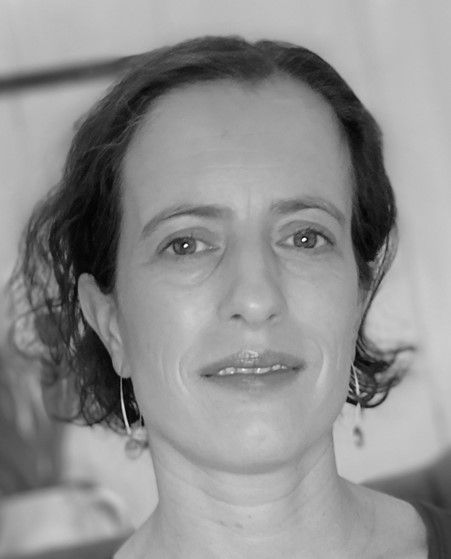Introduction
We provide a choice of expertise and support services for a varied range of conditions that can affect the female reproductive system, from urinary tract infections to ovarian cancer. Our consultant gynaecologists and clinicians are here to advise you on any aspect of your reproductive health, including fertility problems, contraception, abnormal smear tests and difficulties associated with menopause.
Depending on your personal and physical circumstance, your consultant gynaecologist may provide advice, organise tests, perform examinations or even recommend surgery. Our gynaecology clinics can also provide advice on options for contraception and treat disorders during the early stages of pregnancy.
We offer laparoscopy and hysteroscopy procedures to help diagnose and treat gynaecological conditions.

Ready to book now? Get in touch to discuss your needs and decide on the best course of treatment for you.
Ready to book now? Get in touch to discuss your needs and decide on the best course of treatment for you.
What is gynaecology?
Gynaecology is a medical speciality focused on women’s reproductive health. This includes the uterus, ovaries, cervix and vagina, and the female hormones that regulate the menstrual cycle, fertility, pregnancy and the menopause. The functions, medical disorders and diseases of the female reproductive system all fall under the heading of gynaecology.
Common gynaecological procedures
laparoscopy
Laparoscopy is a type of surgical procedure that allows a surgeon to access the inside of the abdomen (tummy) and pelvis without having to make large incisions in the skin. The procedure is also known as ‘keyhole surgery’ or ‘minimally invasive surgery.’
Large incisions can be avoided during laparoscopy because the surgeon uses an instrument called a laparoscope.
This is a small tube that has a light source and a camera, which relays images of the inside of the abdomen or pelvis to a television monitor.
The advantages of this technique over traditional open surgery include:
- A shorter hospital stay and faster recovery time
- Less pain and bleeding after the operation
- Reduced scarring.
Excision endometriosis
Endometriosis is a long-term condition where tissue similar to the lining of the womb (endometrium) starts to grow in other places, such as the ovaries and the fallopian tubes, usually during menstruation. The condition can cause pain that is sometimes debilitating (especially during menstrual periods). Typical symptoms of endometriosis can include:
- Severe menstrual cramps
- Heavy and painful periods
- Severe back pain during your period
- Pain during and after sexual intercourse
- Blood in your stool or urine during your period
- Fertility problems
- Diarrhoea or constipation during your period.
While there is no known cure for endometriosis, there are treatments available to help shrink tissue growth and ease pain.
Ovarian-drilling
Laparoscopic ovarian drilling is a surgical treatment that can trigger ovulation in women who have polycystic ovary syndrome (PCOS). Electrocautery or a laser is used to destroy parts of the ovaries.
Ovarian cystectomy
Ovarian cyst removal is surgery to remove one or more cysts from one or both ovaries. A laparoscopic surgery uses small incisions and specialised tools. It may offer faster recovery times than open surgery, which uses a larger abdominal incision.
An ovarian cyst may need to be removed if it is:
- Causing pain
- Suspected of being cancerous
- Large – more than 2.5 inches in diameter
- Is growing in size.
Salpingectomy
A salpingectomy is the removal of one (unilateral) or both (bilateral) of the fallopian tubes. Laparoscopic surgery is a minimally invasive surgery technique that only uses a few small incisions on your lower abdomen.
Sterilisation
It is a minor surgical procedure performed under a general anaesthetic, which provides permanent contraception by blocking the fallopian tubes – usually with metal clips. This prevents the egg from the ovaries travelling to the womb (uterus) and also prevents the egg and sperm from meeting, so there can be no fertilisation nor resulting pregnancy.
hysterectomy
A hysterectomy is a radical operation to remove your uterus and cervix. There are two kinds of hysterectomy – abdominal and vaginal.
If necessary, your ovaries can be removed at the same time. The common reasons for having an abdominal hysterectomy include heavy periods, fibroids, endometriosis, chronic pelvic inflammatory disease and ovarian cysts. In a vaginal hysterectomy, it is possible to remove your ovaries, but they will more than likely not be removed.
The common reasons for having a vaginal hysterectomy include uterine prolapse, heavy periods and fibroids.
Hysterocopy for fibroid resection
A hysteroscopic resection of fibroids is a procedure where a thin telescope (hysteroscope) and small surgical instruments are used to remove fibroids. The procedure can be used to remove fibroids from the womb lining (submucosal fibroids) and is suitable for women who want to have children in the future.
Hysteroscopy for endometrial polyp ressection
The most common problems we find during a hysteroscopy are small growths in the womb lining (endometrium) called endometrial polyps. We can remove most polyps, and some submucosal fibroids as an outpatient procedure, usually at the same appointment. Removing a polyp from the inside of your womb is called a Hysteroscopic Polypectomy.
Endometrial ablation
An endometrial ablation is a gynaecological procedure used to remove the lining of the uterus (womb). This surgery is often used as a way to improve the problems and symptoms of heavy, prolonged periods (also known as menorrhagia), by reducing the amount of bleeding and the associated pain.
A hysteroscopic endometrial ablation is not recommended for women who plan to have children. Although, it will not eliminate all risks of becoming pregnant.












